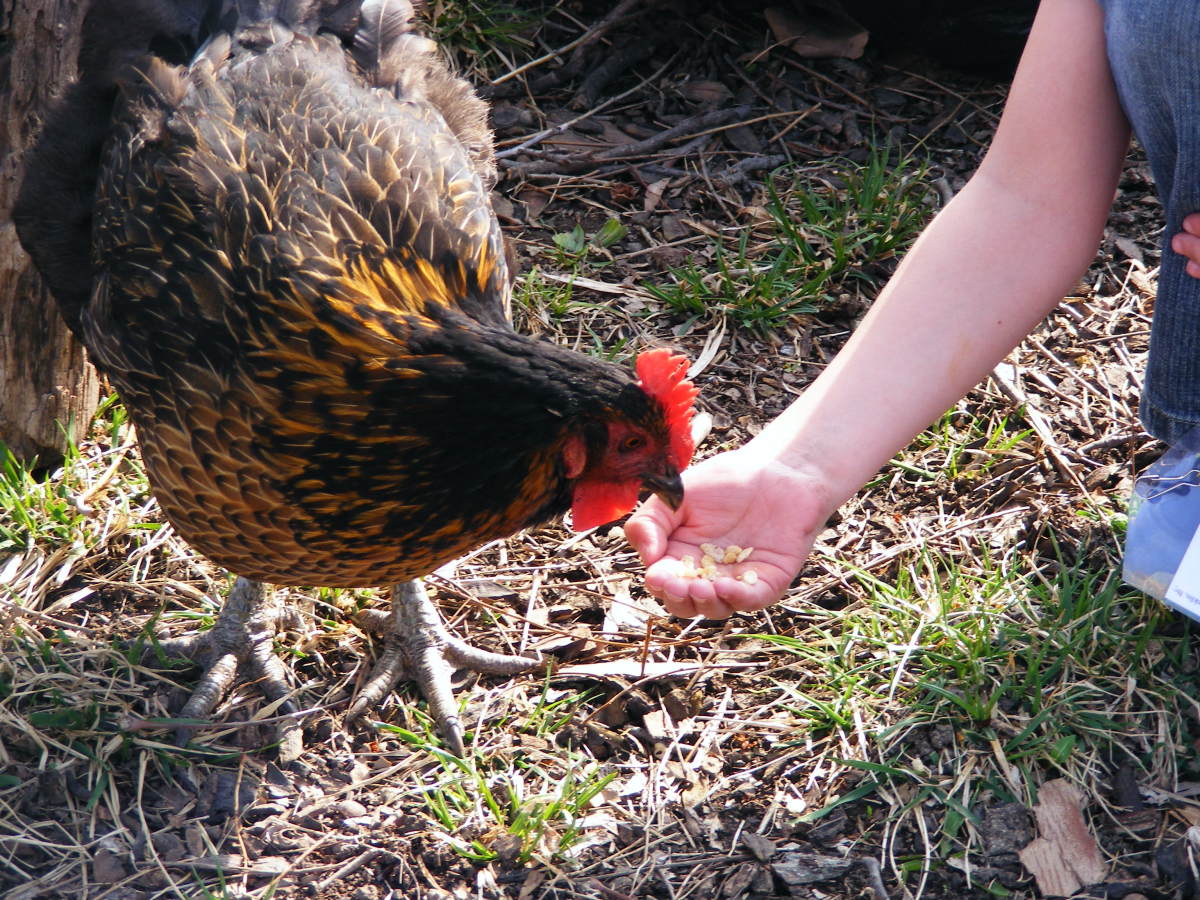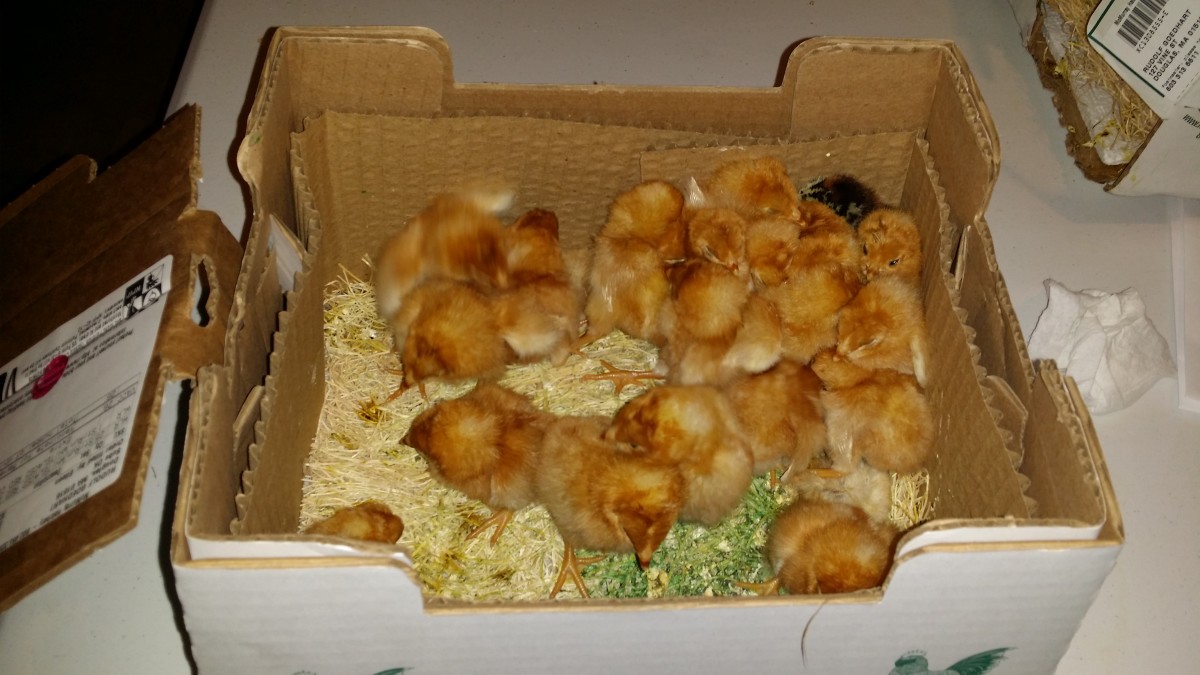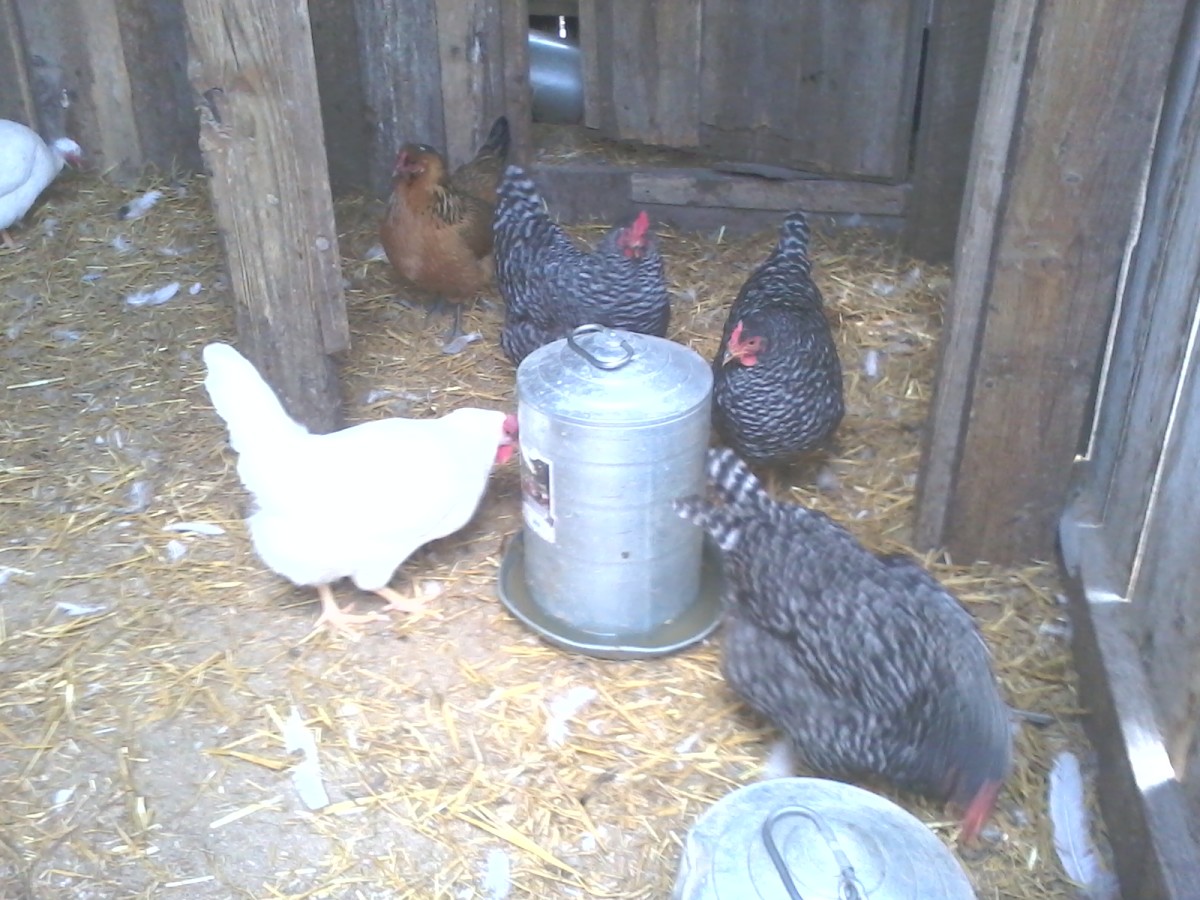- HubPages»
- Pets and Animals»
- Farm Animals & Livestock»
- Hens & Roosters
Know What You're Eating (Part 1)- Chickens
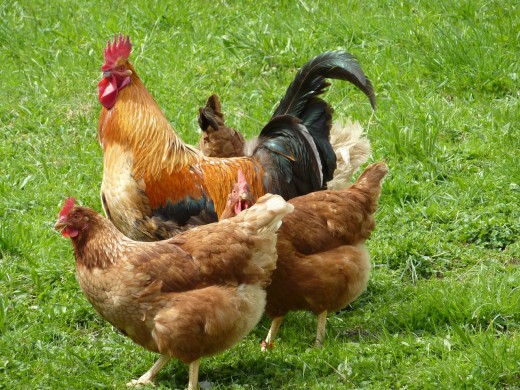
Chicken is a primary source for meat in the United States today. According to the NCC website, consumption of chicken has been rising steadily each year since 1965, compared to the stagnant numbers of beef and pork. Chicken has become the go-to lean meat for Americans.
But what happens to these chickens before their slaughter? This article delves deep into the food processing industry to uncover the truth of what happens on large, commercial farms.
*Disclaimer:* The results reveal a shocking truth. Content may be too graphic for some readers.
Chickens as a Species
Recent studies have shown chickens to be intelligent creatures. They are curious and social, functioning best in small groups of up to ninety chickens. Some scientists have even compared their intelligence to intelligent mammals such as cats, dogs, and primates. Chickens are known for creating social bonds; some have even bonded with humans.
Most chickens spend their time bathing in the sun, taking dust baths, and digging for food.
Hens in Factory Farms
Laying hens never get the chance to do the things natural to their species.
On commercial farms, hens are stuffed into tiny cages at a young age. Crammed so closely together, they are not able to flap their wings or walk more than a few steps. Because they are never let out of these cages, they must sit in their own urine and feces.
In their agitation and boredom, the chickens are prone to peck each other fiercely. As a result, part of their beak is removed, often without painkillers, to prevent this natural result of distress.
Once they have served their purpose of laying eggs, they are immediately shipped off for slaughter.
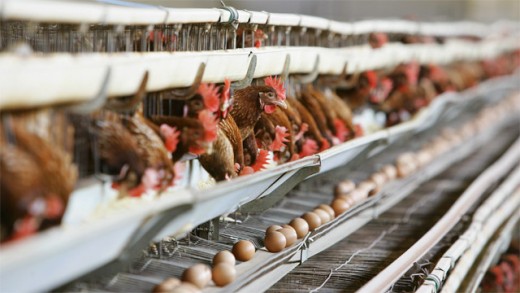
Roosters on Factory Farms
Because they can't lay eggs and don't provide enough meat, hatched baby roosters of the laying hens don't get a chance to live. They are often tossed alive into grinders or suffocated in bags upon birth.
"Broiler" Chickens
Baby chicks only a day old are placed in huge sheds with thousands of other chickens to be raised for their meat.
Research shows that chickens thrive in small social groups. However, they are not able to form the needed social bonds in groups that extend to the thousands. As a result, there is much violence among the chickens in these sheds. Many end up dead from being pecked to death by the other chickens.
While violence remains rampant among the distressed chickens, they are also injected with steroids that increase their natural size in order to produce more meat. Their bodies are not meant to handle this sudden increase in mass. As a result, many of these chickens die from organ failure, or their legs break under the pressure of their enormous bodies.
At only 6-7 weeks, the chickens are sent to the slaughterhouse. Since chickens are not protected under the Humane Methods of Slaughter Act, chickens sometimes are not numbed before their throats are cut and tossed into scalding water to strip their feathers. If their throats have not been cut properly, the chickens are boiled alive in the water. Slaughterhouses call these birds, "Redskins."
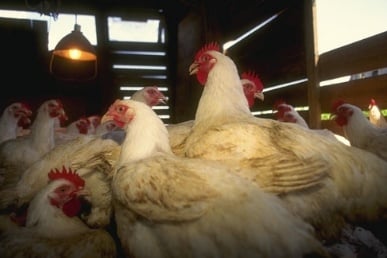
What YOU Can Do
You don't have to cut chicken completely out of your diet to help fix this cruel injustice. Here are a few things you can do to help:
- Buy cage-free eggs. Cage-free means exactly what it sounds like: eggs created by chickens that are able to roam freely, without the confines of tiny cages. Cage-free eggs do not cost much more than the regular brand, and by buying them, you are not participating in the cruel practice of caging laying hens.
- Search locally. Local farmers are much less likely to participate in these horrendous practices. Search for local sources of meat by attending your weekly farmer's market.
- Participate in Meat-Free Mondays. Just cutting meat from your diet one day a week can cut the large demand. If you still want the taste, try buying vegetarian chicken. Vegetarian chicken can be found in the frozen section of most Walmart stores.
- Sign petitions. Petitions are constantly put out on the internet to protect birds under the Humane Slaughter Act and to stop these cruel practices on farms. Search places like change.org for petitions to speak out against this cruelty. The account is free, and all you have to do is click "sign." You don't even have to provide your name publicly.
- If you live in the country, consider raising your own chickens. Mind you, this should only be an option if you have the time and have a proven track record of taking good care of animals. But if you want to be sure that your eggs are coming from a safe place, consider saving the lives of some chickens by raising them yourself.

